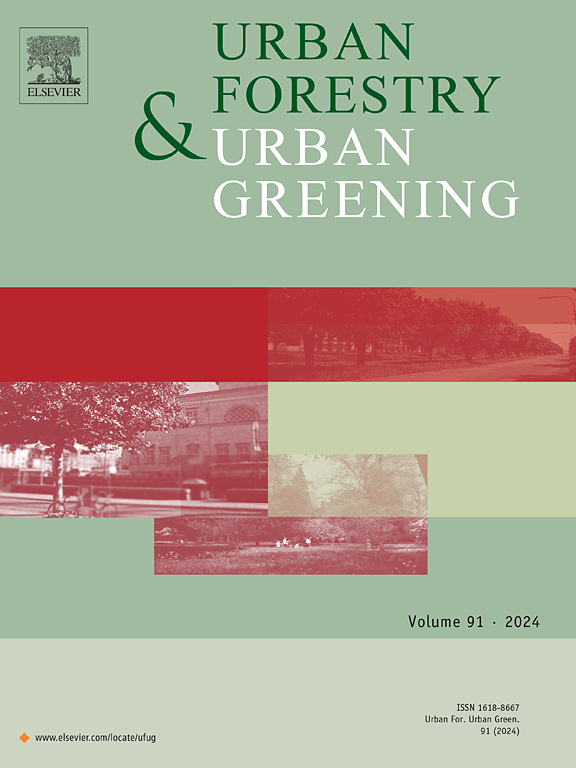非政府组织在北京城市绿地共建中的作用
IF 6.7
2区 环境科学与生态学
Q1 ENVIRONMENTAL STUDIES
引用次数: 0
摘要
合作生产的研究主要集中在公民-政府的动态,但非政府组织作为中介机构的参与重塑了这种关系。在国家控制依然强大、民间社会非正式运作的情况下,非政府组织如何在合拍片中发挥作用,人们知之甚少。了解这些动态是至关重要的,因为非政府组织可以加强或挑战现有的权力结构,从而影响合作生产导致更具包容性的城市治理的程度。本研究探讨了正式和非正式的非政府组织-政府关系,以及强弱国家嵌入性如何塑造非政府组织在中国北京绿色空间规划、开发和管理中的角色。数据收集自对北京积极参与绿色空间合作的非政府组织工作人员、市民和政府进行的42次深度访谈。研究结果表明,在非正式互动中,非政府组织是共同生产绿色空间的发起者、推动者和监督者。他们邀请政府参与,发起共同努力,并使他们的环境使命与国家政策保持一致,以实现影响力和倡导。嵌入程度高的非政府组织通常扮演服务提供者的角色,而嵌入程度低的非政府组织则扮演倡导者的角色,塑造政策影响力和公众动员。通过剖析非政府组织在合作生产中运作的机制,本研究揭示了非政府组织如何扩大公民空间、谈判权力和应对结构性约束。在中国,非政府组织参与到绿色空间的合作中,有助于推进程序和承认的公正。本文章由计算机程序翻译,如有差异,请以英文原文为准。
The roles of non-governmental organizations in the co-production of urban greenspaces in Beijing
Co-production research primarily focused on the citizen-government dynamic, but the involving of non-governmental organizations (NGOs) as intermediaries reshaped the relationship. Little is known about how NGOs navigate their roles in co-production where state control remains strong and civil society operates informally. Understanding these dynamics is crucial because NGOs can either reinforce or challenge existing power structures, influencing the extent to which co-production leads to more inclusive urban governance. This study explores how formal and informal NGO-government relations, along with the strong and weak state embeddedness, shape the roles of NGOs in the planning, development, and management of greenspaces in Beijing, China. Data were collected from 42 in-depth interviews with NGO staffs, citizens, and governments, who actively engaged in greenspace co-production in Beijing. The findings reveal that in informal interactions, NGOs are initiators, promoters, and supervisors in co-producing greenspaces. They invite government participation, initiate joint efforts, and align their environmental missions with national policies to achieve influence and advocacy. Strongly embedded NGOs typically act as service providers, while less embedded NGOs serve as advocates, shaping policy influence and public mobilization. By unpacking the mechanisms through which NGOs operate in co-production, this study sheds light on how NGOs expand civic space, negotiate authority, and navigate structural constraints. The participation of NGOs in the co-production of greenspaces in China contributes to advancing procedural and recognitional justice.
求助全文
通过发布文献求助,成功后即可免费获取论文全文。
去求助
来源期刊

Urban Forestry & Urban Greening
FORESTRY-
CiteScore
11.70
自引率
12.50%
发文量
289
审稿时长
70 days
期刊介绍:
Urban Forestry and Urban Greening is a refereed, international journal aimed at presenting high-quality research with urban and peri-urban woody and non-woody vegetation and its use, planning, design, establishment and management as its main topics. Urban Forestry and Urban Greening concentrates on all tree-dominated (as joint together in the urban forest) as well as other green resources in and around urban areas, such as woodlands, public and private urban parks and gardens, urban nature areas, street tree and square plantations, botanical gardens and cemeteries.
The journal welcomes basic and applied research papers, as well as review papers and short communications. Contributions should focus on one or more of the following aspects:
-Form and functions of urban forests and other vegetation, including aspects of urban ecology.
-Policy-making, planning and design related to urban forests and other vegetation.
-Selection and establishment of tree resources and other vegetation for urban environments.
-Management of urban forests and other vegetation.
Original contributions of a high academic standard are invited from a wide range of disciplines and fields, including forestry, biology, horticulture, arboriculture, landscape ecology, pathology, soil science, hydrology, landscape architecture, landscape planning, urban planning and design, economics, sociology, environmental psychology, public health, and education.
 求助内容:
求助内容: 应助结果提醒方式:
应助结果提醒方式:


